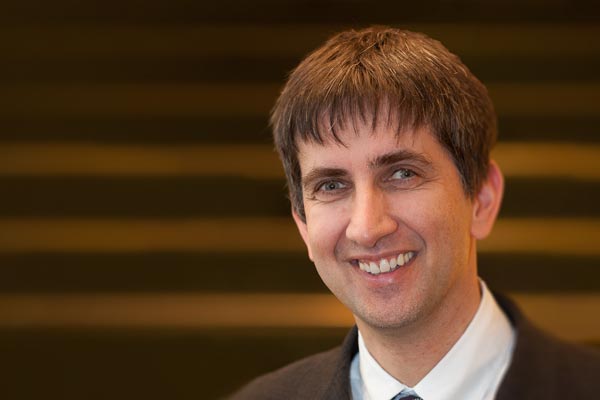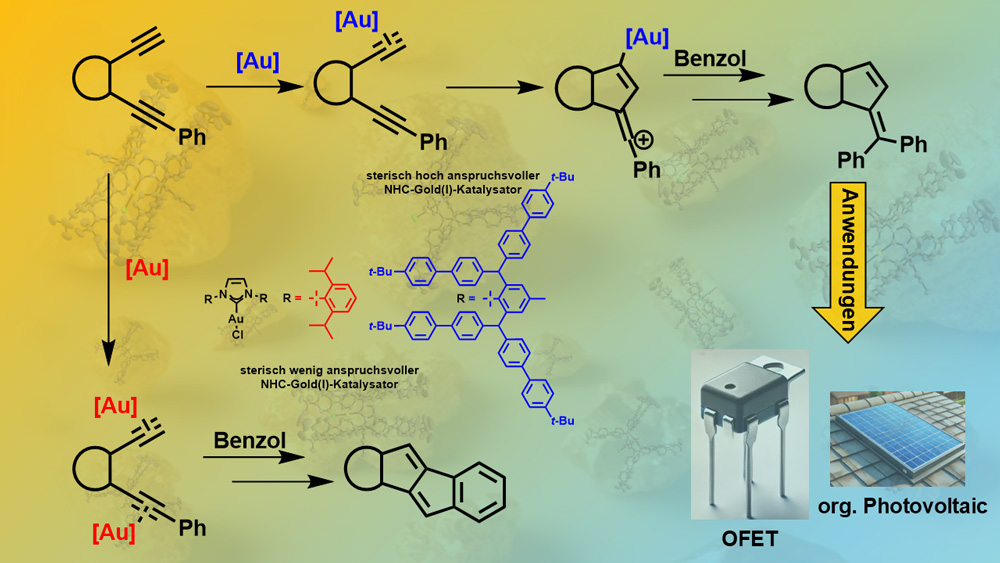Investigation of the influence of sterically challenging NHC gold(I) complexes in di-cyclizations
Matthias Scherr — Hector Fellow A. Stephen K. Hashmi
The research project investigates the influence of sterically demanding NHC-gold(I) complexes on the cyclization of diyne derivatives. The focus is on the synthesis of various sterically demanding NHC-gold(I) complexes and their application in diyne cyclizations, particularly examining the reactivity and selectivity in gold-catalyzed reactions. Further investigations include theoretical calculations and practical applications of the synthesized cyclization products for pharmaceuticals or organic materials.
The research project investigates the influence of sterically demanding N‑heterocyclic carbene-gold(I) complexes on the cyclization of diynes. A particular focus is placed on the synthesis of various sterically demanding NHC-gold(I) complexes and their application as catalysts in diyne cyclizations. The study explores the reactivity and selectivity in gold-catalyzed reactions. Initial studies indicate that sterically demanding NHC-gold(I) complexes overcompensate the electronic influence of the metal center without reducing its reactivity.
Further investigations include quantum chemical calculations and practical applications of the synthesized cyclization products in pharmaceuticals and organic materials. By varying the backbone of the diynes, introducing different substituents, and using various solvents, the project aims to test the limits of the catalytic system. Additionally, bidirectional approaches and the use of triyne systems are considered. Moreover, the applicability of the catalytic system to En-Yne and En-En cyclizations will be examined.
The goal is to enable targeted control of selectivity in gold-catalyzed diyne cyclization through catalyst variation. Furthermore, the project will uncover new catalytic pathways and is extendable to other NHC-metal complexes. The mechanistic insights gained from this research will not only deepen the understanding of gold catalysis but also promote the development of new applications in organic materials and pharmaceuticals.
Mechanistic reaction pathways of di-cyclisations with NHC-Gold(I) complexes using the sterically less demanding IPrAuCl ([Au]) and a sterically highly demanding NHC-Gold(I) complex ([Au]).

Matthias Scherr
Heidelberg UniversitySupervised by

A. Stephen K. Hashmi
ChemistryHector Fellow since 2010


